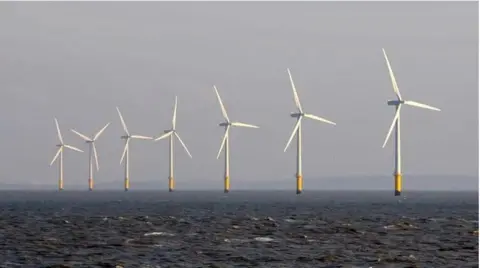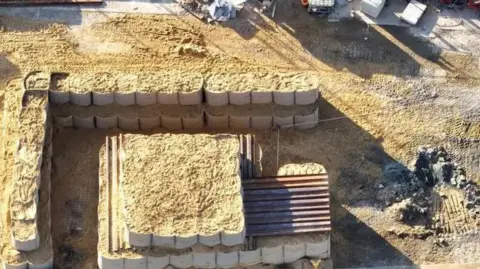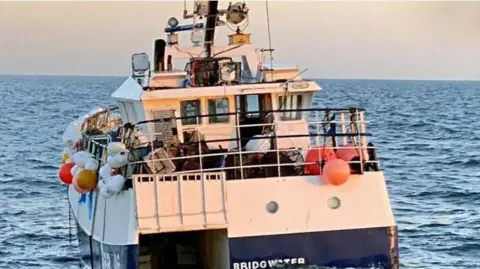Hundreds of WW2 bombs may be detonated along coast
 BBC
BBCMore than 600 unexploded World War Two (WW2) bombs lying on the seabed could be exploded ahead of three new wind farm projects in a county.
The energy firm RWE has applied for two licences to investigate a large area stretching out from Sea Palling and Mundesley, in Norfolk, into the North Sea.
The company must make sure vessels and equipment will not be endangered by the potentially volatile objects before construction can start.
Last year a German WW2 bomb was found in a river in Great Yarmouth, while a crabbing boat crew was injured after disturbing a German bomb near Cromer in 2020.
 Norfolk Police
Norfolk PoliceCurrently 636 unexploded objects have been identified in a survey, but more could be found.
Options could include detonating the bombs and mines, routing cables around them or relocating them, if deemed safe to do so.
The proposal has been made for the Norfolk Boreas, Norfolk Vanguard East and Norfolk Vanguard West offshore wind farm projects being developed by RWE.
The German energy firm acquired the rights to the projects from the Swedish company Vattenfall.
If approved, remotely operated vehicles will scour about 40km (24 miles) of seabed to identify any potential explosives, within a 50m (164ft) buffer zone of the proposed wind turbines and their shared cable routes.
Some of the bombs were located in an area covered by a Sabellaria reef, an important habitat to many marine creatures.
There was a risk that the reef could be disturbed due to the investigation work.
Bombs and mines, scattered by German and Allied forces during the war, continue to pose risks despite lying dormant for about 80 years.
Work on Great Yarmouth's Herring Bridge was delayed after a bomb was dredged out of the River Yare during its construction.
It exploded before it was due to be detonated.
 Andrew Oliver
Andrew OliverIn December 2020, fishing boat Galwad-Y-Mor was blown out of the water after a crab pot string disturbed old munitions on the seabed.
Crew members were knocked to the deck and the boat started to fill with water.
The captain, who suffered three broken vertebrae, a broken sternum, knee damage, a broken orbital bone and multiple face lacerations, managed to radio the coastguard and a sister boat.
The injured crew members - with one man losing his sight in an eye - were eventually picked up by wind farm support vessels.
If the licences are approved, engineers could begin hunting for the bombs within months.
Follow Norfolk news on BBC Sounds, Facebook, Instagram and X.
